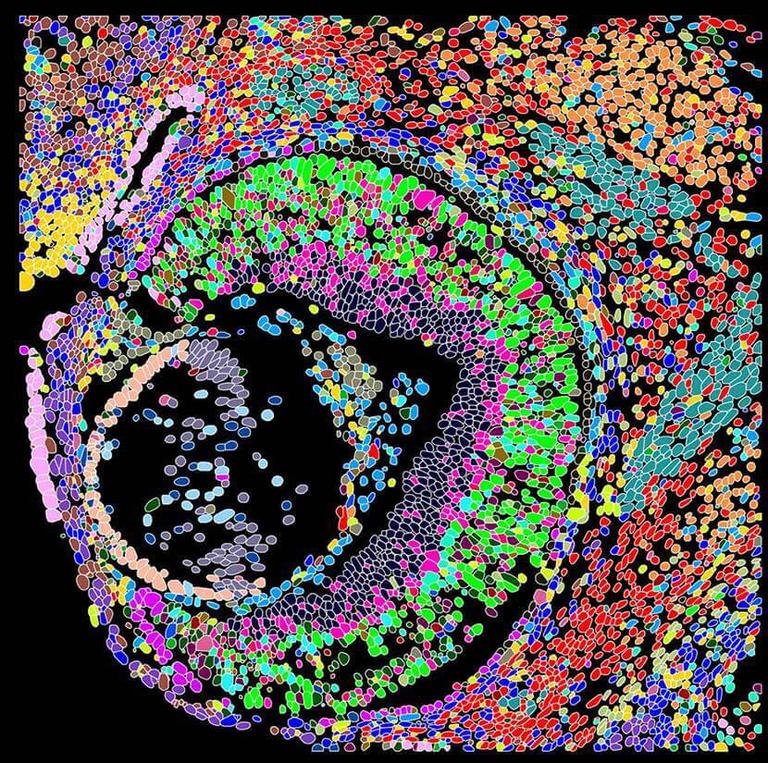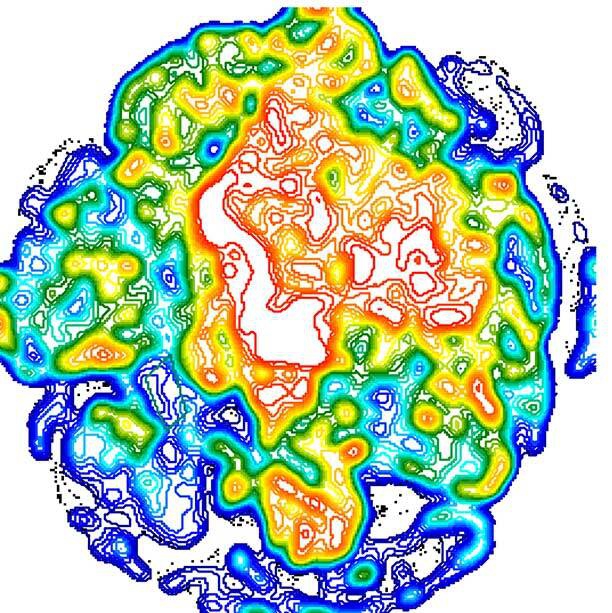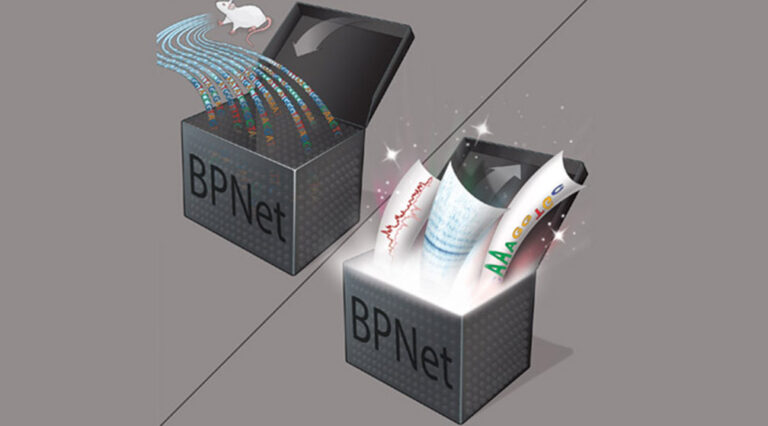News

08 August 2023
When biology and computing collide
Stowers scientists leverage the power of AI to uncover fundamentals of development
Read Article
News
The Computational Biology Scholars Program seeks to create new possibilities to perform cutting-edge, collaborative, and multidisciplinary computational science in the Midwest.

Mouse eye gene expression is examined using spatial transcriptomics on the Nanostring platform. Colors indicate how different cells were clustered into cell types.
The Graduate School of the Stowers Institute for Medical Research is launching a professional learning experience for early-career computational biologists and bioinformaticians, the Stowers Computational Biology Scholars Program. This one-year program is an immersive opportunity to gain mentored, hands-on training from Stowers Technology Center scientists while answering fundamental biological questions within a Stowers laboratory.
“This is an opportunity for early-career computational scientists to be a part of and have the potential to change the way we do medicine and understand the world around us,” said Jay Unruh, Ph.D., Director of Scientific Data at the Stowers Institute.
This opportunity is fully funded and aims to provide career enhancement through mentorship and experiential learning. Following program completion, scholars will have gained valuable training, practical research experience, and may be eligible for full-time employment at the Institute.
Over the past decade, advances in technology have increased exponentially. Techniques like single-cell RNA sequencing and spatial transcriptomics have enabled biologists to collect vast amounts of data. Similarly, computational capacity has also advanced, now allowing the ability to make sense of this data.

Using the t-distributed stochastic neighbor embedding (t-SNE) dimensional reduction algorithm allows scientists to identify populations of interest that differ between cave and surface fish by reducing the multi-dimensional cell feature data extracted from DNA fluorescence intensity images to two dimensions.
Stowers Investigator Julia Zeitlinger, Ph.D., explained why investing in the training of computational biologists is more essential than ever, “As our ability to collect data has increased, answering fundamental questions in biology requires computational methods. Progress in artificial intelligence is providing opportunities to analyze and detect patterns within data in an unprecedented fashion, enabling systematic investigation of the tree of life and ultimately what makes us human.”
Opportunities for early-career computational scientists to apply their skills to answering questions in foundational biology tend to be concentrated on the East and West coasts. The Computational Biology Scholars Program seeks to fill in this gap by creating new possibilities to perform cutting-edge, collaborative, and multidisciplinary computational science in the Midwest.
“Participants who complete our program will be uniquely positioned for success in several ways—not only will they gain an understanding for how to apply bioinformatics to biology, but they will also have opportunities to contribute to current biological problems being studied at the Institute,” said Unruh. “Imagine being part of a team that discovers how animals regenerate missing body parts or utilizing artificial intelligence to model the molecular regulation of animal development.”
Potential scholars with a bachelor’s degree or higher in computer science, bioinformatics, and related fields, or a biology degree with experience in coding are encouraged to apply before the deadline on March 22, 2024.
News

08 August 2023
Stowers scientists leverage the power of AI to uncover fundamentals of development
Read Article
News
06 April 2023
Kaelan Brennan is a predoctoral researcher in the Zeitlinger Lab at the Stowers Institute. He provided a “Look in the Lab” to showcase the research the team is currently conducting.
Read Article
Press Release

19 February 2021
Opening the black box to uncover the rules of the genome’s regulatory code
Read Article
